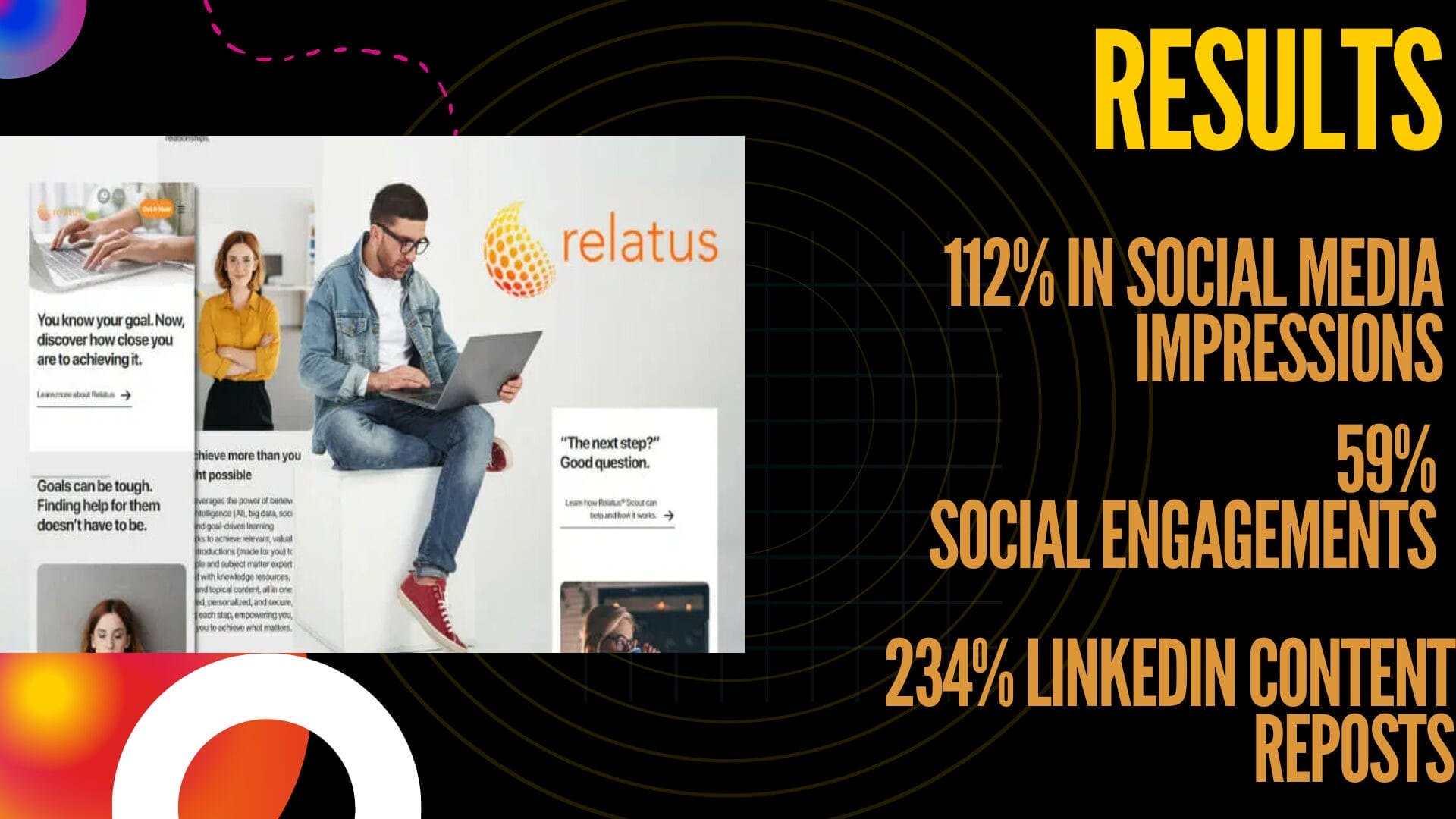SEO Strategy That Improves Impressions for AI-Powered Connection Platform

In the digital era, where artificial intelligence (AI) is reshaping industries, AI-powered connection platforms are emerging as pivotal tools in bridging digital interactions. These platforms, leveraging AI to enhance connectivity and user experience, face a unique set of challenges in a crowded digital space. For such platforms, the implementation of an effective SEO strategy isn’t just beneficial – it’s crucial.
This article aims to dissect and lay out a create an SEO strategy tailored specifically for AI-powered connection platforms. We’ll explore how to enhance online appearance, drive user engagement, and ensure these innovative platforms not only get found but also deliver value in the ever-evolving digital landscape of 2024. By the end of this guide, you’ll have a comprehensive understanding of the strategic nuances involved in SEO for AI-powered platforms, equipped with insights to catapult your platform’s online presence. Let’s embark on this journey to turn your AI-driven connectivity solutions into digital success stories.
Understanding AI-Powered Connection Platforms


The dynamic and constantly learning nature of AI in these platforms means that the content, user interaction, and even the functionalities evolve rapidly. Traditional SEO strategies might not be agile enough to keep up. The key is to understand how AI shapes user behavior and expectations on these platforms and how search engines interpret and rank such dynamic seo content. This understanding will form the backbone of our tailored Search engine optimization strategy, ensuring that the AI-powered nature of these platforms is not just a feature, but a defining element in their digital marketing success. 60% of consumers are now open to using AI-powered platforms for personalized recommendations and connections.
Optimizing Your SEO Strategy


- On-Page Optimization: This includes fine-tuning the content and design elements of the platform to ensure they are both user and AI-friendly. The use of AI to generate or personalize content adds another layer to traditional on-page SEO best practices. Your content must not only be rich with relevant keywords but also adaptable to the varying contexts AI creates.
- Technical SEO: AI platforms often require sophisticated technical setups, which can present unique challenges in SEO. Ensuring fast load times, mobile responsiveness, and proper indexing are critical. Moreover, implementing structured data is essential to help search engines understand and categorize the AI-driven content effectively.
- Content Quality: In the realm of AI, content is not static. As platforms learn and adapt to user preferences, the content evolves. High-quality, dynamic content that aligns with user search intents and is regularly updated, becomes indispensable in such a context.
By focusing on these areas, an AI-powered connection platform can significantly improve its performance in Google search results, attracting more organic traffic and establishing itself as a valuable resource in its niche.
Do you want to grow faster? Schedule a free consultation call with an expert.
Addressing Technical SEO Issues
Technical SEO is the foundation upon which a successful Search engine optimization strategy is built, especially for AI-powered connection platforms. These platforms, due to their sophisticated algorithms and user interaction models, demand a more nuanced approach to technical SEO:
- Site Speed: AI platforms often process large amounts of data, which can impact loading times. Optimizing server response times, compressing images, and leveraging browser caching are crucial steps to ensure swift loading, a factor that significantly affects user experience and search rankings. Studies show that 47% of users expect a web page to load in 2 seconds or less.
- Mobile-Friendliness: With the increasing use of mobile devices, ensuring that AI-powered platforms are responsive and mobile-friendly is essential. This involves designing interfaces that adapt seamlessly to various screen sizes and optimizing for touch-screen navigation.
- HTTPS Security: Secure data transfer is critical in AI platforms, where personalization often involves sensitive user data. Implementing HTTPS not only protects user information but also boosts SEO, as search engines favor secure websites url. HTTPS adoption rate for the top 100 websites is 97%.
- Structured Data Markup: This is particularly important for AI platforms as it helps search engines understand the context and content of the pages, which can be quite dynamic and complex. Implementing schema markup for AI-generated content can enhance appearance in search results, making the platform more accessible to potential users.
Addressing these technical SEO issues ensures that search engines can effectively crawl and index an AI-powered platform, enhancing its appearance and user accessibility.
Maximizing On-Page SEO


- Understanding Search Intent: AI platforms must align their content with the users’ search intent. This involves analyzing the types of queries that lead users to AI-driven solutions and crafting content that directly addresses these queries.
- Optimizing Meta Tags: Meta titles and meta descriptions should be concise, compelling, and infused with relevant keywords. Since AI platforms offer dynamic and personalized experiences, meta tags should reflect this uniqueness to stand out in the SERPs (Search Engine Results Pages).
- Improving User Experience (UX): AI platforms must offer an intuitive and engaging user experience. This includes clear navigation, fast-loading pages, and interactive elements that keep users engaged. AI can be utilized to personalize user experiences, which should be reflected in the site’s UX design.
By focusing on these on-page elements, AI-powered connection platforms can significantly enhance their search engine rankings, leading to increased visibility and organic traffic.
Developing a Content Strategy for AI Platforms


A strategic approach to content is pivotal for AI-powered connection platforms, where the content itself can be dynamic and personalized:
Conducting AI-Focused Keyword Research:
In-depth keyword research for AI platforms must account for monthly search volume, relevance, and the context within which search queries occur. AI-powered tools provide insights into long-tail keywords that align with user intent—essential for standing out in search engine results pages. To maximize visibility in search, consider using Google Search Console to track performance and uncover new search trends. Achieving a prominent position, especially on the first page of Google, often involves cultivating quality links back to your website. This, combined with savvy search marketing, forms a strategic SEO framework tailored for AI platforms.
Content Tailored to AI and Users:
For AI-powered connection platforms, striking the right balance in SEO strategy means catering both to AI algorithms and end-users. This dual focus requires not just any content on your site, but the type of content that is high-quality, informative, and engaging. Keywords should be woven naturally throughout your text to resonate authentically with what users are searching for. The dynamic nature of an AI platform means that the content on your website must not remain static. Regular updates are crucial as the platform’s capabilities and user needs evolve. Providing fresh, relevant content keeps up with the changing queries and preferences, ensuring that both users and search algorithms find value in what your platform offers. High-quality content can increase organic traffic by 250%.
By combining these elements, AI-powered connection platforms can develop a content strategy that not only appeals to search engines but also resonates with the target audience.
Boost Your Business with New AI Trends – Get a Free Strategy Session Today
Creating SEO-Friendly Content for AI Connection Platforms
Creating SEO-friendly content for AI-powered platforms involves a balance between catering to search engines and providing real value to users:
- Incorporating Relevant Keywords: Use keywords that are specific to AI and the platform’s unique offerings. However, it’s crucial to integrate them naturally into the content, avoiding keyword stuffing, and maintaining readability.
- Content Structure and Clarity: The content should be well-structured with clear headings, subheadings, and short paragraphs. Bullet points and lists can enhance readability, making it easier for users and search engines to grasp the content’s essence.
- Providing Value and Relevance: The content should offer valuable insights, tips, or solutions specific to AI-powered connectivity. It should address the common questions and pain points of the target audience, positioning the platform as a knowledgeable and trustworthy source in the AI space. Including relevant visuals can increase content engagement by up to 80%.
- Regular Updates and Fresh Content: Given the fast-evolving nature of AI, regularly updating the content is vital. New developments, insights, and applications of AI should be incorporated into the platform’s content strategy to maintain relevance and authority.
- Multimedia Elements: Incorporate images, videos, and infographics to explain complex AI concepts visually. This not only enhances user engagement but also contributes to Search Engine Optimization through image and video search optimization.
By focusing on these aspects, AI-powered connection platforms can create content that not only ranks well on search engines but also truly engages and informs its users.
Improving SEO Performance For AI Connection Platforms
Leveraging SEO performance enhancement on AI-powered connection platforms offers a strategic advantage. Provide deep insights into user behavior, preferences, and search patterns, allowing for a more targeted good SEO strategy:
- Evaluating SEO Metrics: Utilize AI tools to analyze key basic SEO metrics such as organic search traffic, bounce rates, engagement levels, and conversion rates. This data helps identify what’s working and where improvements are needed.
- AI-Driven Backlink Analysis: AI can efficiently analyze your platform’s backlink profile, identifying high-quality links and potential opportunities for improvement. It can also help find relevant domains for link building and creating backlinks. Top-ranking websites typically have 40% more backlinks than their lower-ranking competitors
- Content Performance Analysis: AI tools can evaluate which types of content are resonating with your audience, providing insights into topics that are most engaging and formats that are most effective.
- Predictive Analysis: Use AI for predictive analytics to forecast future trends in user behavior and search patterns. This allows you to proactively adapt your SEO strategy, staying ahead of the curve.
Incorporating this insights into your Search engine optimization strategy ensures a dynamic, data-driven approach, enhancing the effectiveness of your efforts on AI-powered platforms.
Case Study: The Relatus Example


Objective:
The primary objective for Relatus was to amplify its online presence and engagement, focusing on becoming more visible and influential in the competitive digital landscape of AI-powered platforms. This objective was centered around not just increasing raw traffic numbers but also improving qualitative aspects like user engagement and brand recognition.
Challenges:
Relatus faced the challenge of standing out in a crowded digital space, where competing AI platforms vied for attention. The key challenges included increasing the platform’s visibility, engaging a wider audience, and converting this engagement into tangible business outcomes. This required a multifaceted approach that addressed both the technical and creative aspects of digital marketing.


Solution:
Digital Delane’s solution was a comprehensive digital marketing strategy. This included enhancing the platform’s social media presence, refining analytics tracking for better insights, developing a targeted content strategy, and optimizing SEO to improve search engine rankings. Each element of this strategy was designed to synergize with the others, creating a cohesive and effective marketing approach.
Ready to Discuss Your Project? Chat With Our Marketing Team
Strategy:
The strategy employed by Digital Delane was multifaceted, involving an in-depth analysis of Relatus’s market position and potential avenues for growth. It included leveraging social media for greater brand awareness, using advanced analytics to understand user behavior and preferences, crafting high-quality content tailored to the platform’s audience, and implementing cutting-edge SEO techniques to increase visibility in search engine results.
Results:


The implementation of the digital marketing strategy for the AI-powered platform led to impressive results in key performance metrics, indicating a successful campaign.
- Social media impressions increased by 112% across all platforms.
- Engagement rose by 59%, indicating improved brand visibility and audience interaction.
- Social media following grew by 68%, reflecting an expanding user base.
- LinkedIn content reposts soared by 234%, showcasing enhanced content relevance and user interest.
- Website user engagement improved by 75% compared to the previous quarter, highlighting the effectiveness of SEO and content strategies.
Conclusion
In conclusion, enhancing the online presence of AI-powered connection platforms requires a blend of traditional SEO tactics and innovative AI-driven strategies. By understanding your audience, optimizing content, and leveraging AI for insights and performance analysis, you can significantly improve your platform’s visibility and user engagement. As the digital landscape continues to evolve, staying ahead with a data-driven, user-centric SEO approach is key to long-term success.
Interested in transforming your AI-powered platform’s digital presence? Contact Digital Delane today to explore how our expert strategies can elevate your brand in the competitive digital marketplace.

















